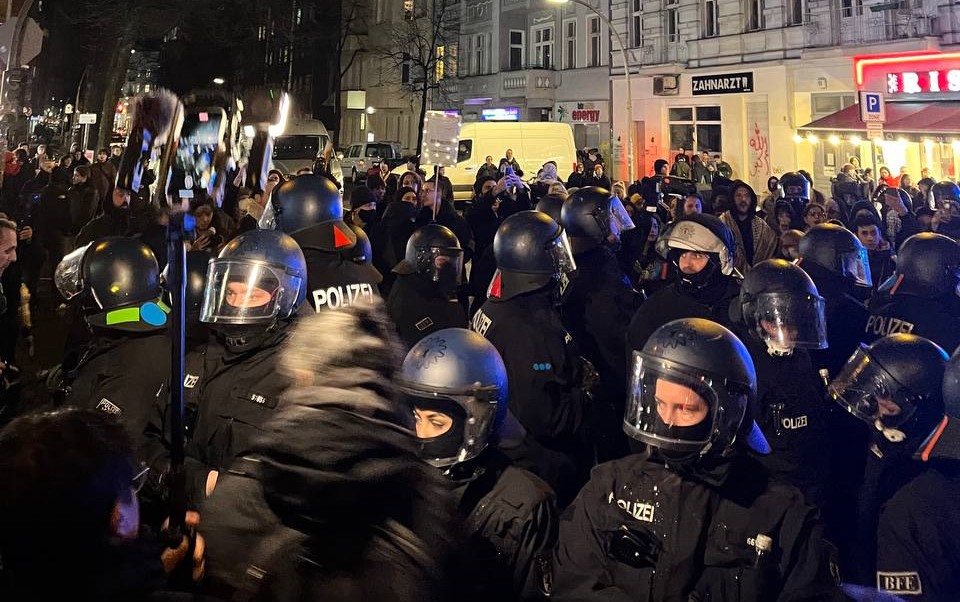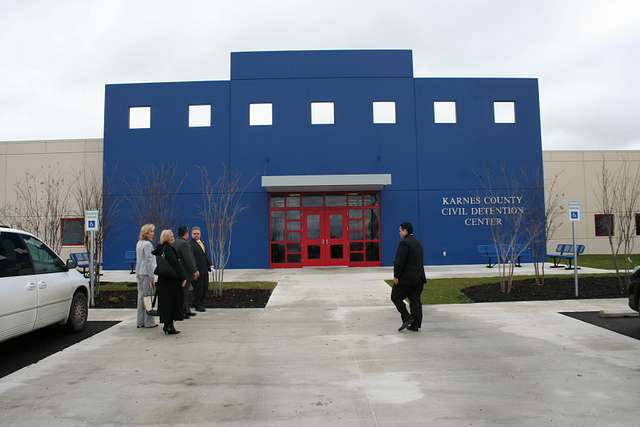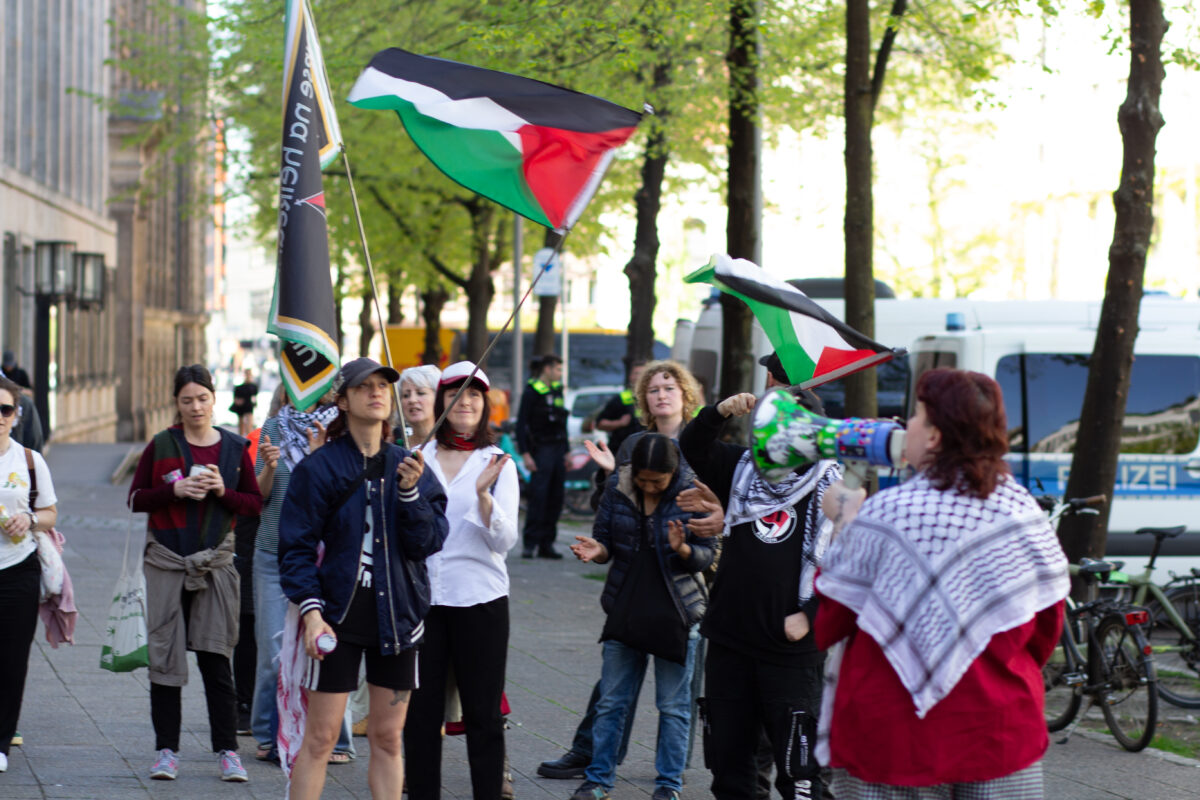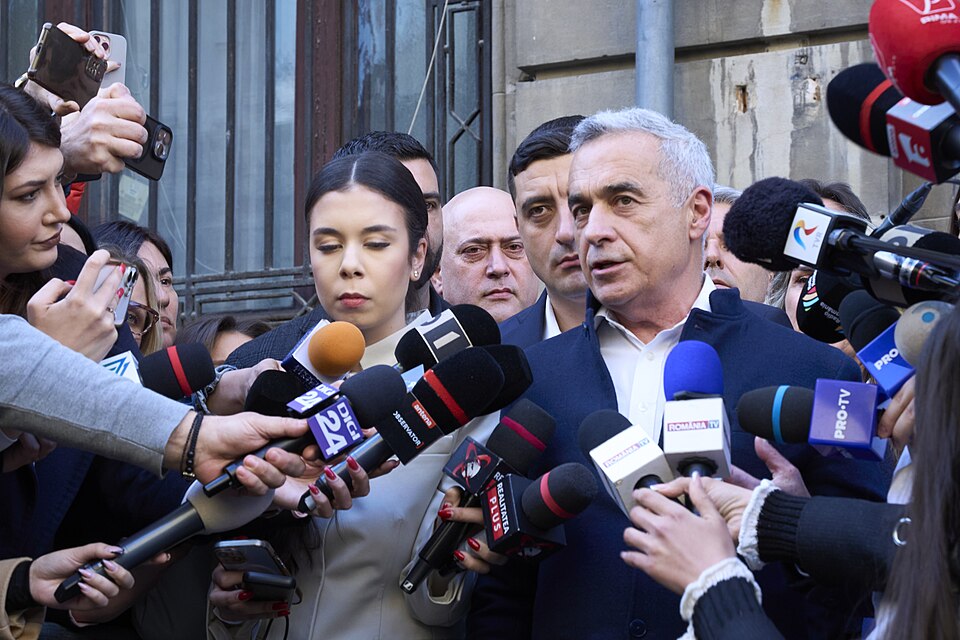Hi, Nadija. We’ve spoken to each other a lot recently, but just one more time. Can you introduce yourself?
Yes. My name is Nadija Samour. I’m a lawyer specialized in criminal defence law, and I am also the Senior Legal Advisor for the European Legal Support Center (ELSC), an organization that supports Palestine activists in their rights and in their organizing.
Today we’re talking about the new antisemitism resolution. What is it that’s just been passed in the Bundestag?
It is called “Never again is now—protecting, preserving and strengthening Jewish life in Germany”. It’s a non-binding motion in the German parliament, the Bundestag, which has been brought forward by all the parties. I believe that Die Linke had their own resolution, but it wasn’t accepted. The majority of all the parties voted for the resolution. The BSW [Bündnis Sahra Wagenknecht] voted against, and there were some abstentions from other parties, but the majority voted in favour.
The content of this motion says that it aims to protect Jewish life, but what it actually does is, yet again, conflate antisemitism and anti-Zionism, and sees all criticism of Israel as being antisemitic. It instrumentalizes the struggle against antisemitism to forward very problematic, almost fascistic elements, such as allowing certain violations of constitutional rights like freedom of speech, freedom of assembly, freedom of the arts, and academic freedoms.
It says that anything which allegedly has antisemitic content should be banned, it should lose funding, it should be outlawed, it should be persecuted, and more.
In the justification for the resolution it says that it is trying to stop antisemitic acts “such as those at the Berlinale and Dokumenta 15”. Can you explain what that’s about and why?
That’s a very good question, because that’s also part of the problem. This non-binding motion aims to cement a certain narrative that is very far from what has actually happened—not only referring to the Berlinale or Dokumenta, but also to the entire history of the occupation of Palestine, and specifically about what happened on 7th October 2023.
The case at the Berlinale was an absolutely ridiculous incident. If it wasn’t so serious, it would really be laughable. Two filmmakers from Palestine—one anti-Zionist Israeli journalist and one Palestinian—came to present their film, No Other Land, for which they got an award. They gave a very good speech which drew attention to the genocide in Gaza and to the to apartheid that is suppressing Palestinians.
The Israeli journalist said that when he goes back he can move freely in the territory, whereas his companion, the Palestinian filmmaker, will be suppressed by checkpoints, by the wall, by the unlawful and discriminatory permit system, and more.
This speech, as it deserved, got standing ovations. Claudia Roth, the Federal Government Commissioner for Culture and the Media also stood up and clapped. Later, Bild Zeitung picked this up and wrote that Claudia Roth and all the others in the audience applauded an antisemitic speech.
Of course there was nothing antisemitic about the speech, just as there’s nothing antisemitic about drawing attention to Israeli violence against Palestinians in all its forms. Genocide is the most severe form, but there is also the permit system, the wall, the checkpoints, the occupation, the siege, and house demolitions. All of these are well-documented violations by the Israeli authorities against the Palestinian people.
Claudia Roth then tried to get out of this by saying that she only applauded for the Israeli filmmaker and not for the Palestinian one, which an online commenter called clapartheid. I found that very amusing.
There was also a very smart subversive action. We don’t know who this hero was, but someone who had access to the Berlinale social media published some posts in solidarity with Palestine under the Berlinale logo. It appeared that this was the official standpoint of the Berlinale. It was not, but we’re talking about artists here. Artists are very creative. And this was a form of artistic direct action.
Claudia Roth has a problem anyway, as even the Jewish-Israeli journalist involved in making the film was accused of antisemitism. It seems once more that white, Christian Germans are telling Jewish people what is and what isn’t antisemitism.
Yes, that is something unfortunate, and also something which has become a pattern. We have all these so-called officers against antisemitism, like Felix Klein and Samuel Salzborn, none of Jewish origin, trying to define, yet again, what a Jew is.
Our Jewish anti-Zionist comrades have much more to say about that, but I believe that the issue here really is that if the German state says it wants to protect Jewish life, and then deliberately excludes anti-Zionist Jews, and excludes the idea that anti-Zionism is a Jewish tradition, then it also excludes those Jews from protection.
This has happened. We’ve seen violent attacks on our anti-Zionist comrades, police violence, and the freezing of the Jüdische Stimme bank account twice. We’ve seen defamation in the media. We’ve seen the Minister for Interior Affairs trying to portray them as Islamists, when she justified the banning of the Palestine Congress, saying that it has been organized by Islamists.
We all know that the Jüdische Stimme was one of the main organizers of the Palestine Congress. They were providing the bank account, and they were the official organization that registered the congress. All of this is used to say that there are good Jews and bad Jews. There are Jews that deserve protection and Jews that obviously do not deserve protection. And if this isn’t antisemitic, then I don’t know what it is.
Let’s move on to BDS, because the ELSC wants to highlight this. We’ve already had a Bundestag resolution on BDS four or five years ago. What’s new with this one?
The wording is much more intense. It has more what I would call “carceral language”. This resolution says for example that it calls the government to ban BDS – a demand that is clearly unconstitutional. A lot of German and international civil society actors have come out against the resolution for good reasons like the ones I have mentioned already, but we at the ELSC saw that it´s important to raise awareness on the attack on BDS.
I think it’s important to amplify that by including, yet again, the aim of criminalizing BDS into this resolution—especially in the historic moment we are in now—it really shows that Germany is resolute in disrespecting international law, human rights law, and its own constitution.
In the meantime, since the passing of the BDS motion in 2019, we have won all legal cases related to the attempted banning of BDS. For example the cases related to banning or defunding certain events or refusing public locations for events, or the threat of deportation of people for supporting BDS. We won those cases because of these defendants’ activism for BDS, and that is a very important fact. The issue event went up to the European level. The European Court for Human Rights decided in 2020, that the right to BDS is protected by the European Convention for Human Rights. And several UN Special Rapporteurs have intervened and called the German government to stop its attacks on BDS.
Meanwhile, the International Court of Justice [ICJ], passed an advisory opinion, basically calling for BDS. The fact that Germany is yet again trying to criminalize BDS is now also a clear show of disrespect for international law and for the findings of the International Court of Justice.
What has also happened since the motion was passed in 2019 is that the Bundestag’s very own research and academic service, the wissenschaftlicher Dienst [scientific service], said that if you made the anti-BDS resolution into a law, it would be unconstitutional.
You cannot ban the campaign, because it’s an expression of an opinion. You cannot ban any association linked with BDS. You cannot base any form of persecution on this resolution. They must know better. And yet, here we are, once again, reading about the attempt to punish BDS. They say things that are not only unrealistic but really unlawful.
Can you say something about Germany? We have this BDS resolution, which wasn’t a law, and as you said, you have won every case against it since. Does this mean it didn’t have any effect?
That is the issue here. Some people like myself keep on emphasizing that it’s not a legally binding resolution. But that’s the problem. The problem with this resolution that we have now, but also the anti-BDS resolution of 2019, plus the resolution of 2019 which aims at implementing the controversial IHRA definition of antisemitism, are all not binding. They deliberately create legal grey zones.
If it was binding, if it was a law, we would go against it. The law would be squashed. The Constitutional Court would say it’s unlawful, it’s unconstitutional, and that’s that. But since this resolution is just an expression of an opinion of the Bundestag, it’s not tangible.
And yet it’s used by ministries and the official funds for the arts, for academics, and for all projects that are dependent on public support and public funding. They will go through scrutiny, including scrutiny by the secret service to determine whether this project or this person or this institution deserves funding.
They might reject your project, and you cannot even go against it because no one has a legal claim to public funding. You will basically be at their mercy, and have to hope that they don’t find you or your project antisemitic. But there’s no binding regulation.
It’s also very intransparent. Sometimes we have cases where a project has nothing to do with Palestine, but the person who’s applying once signed an open letter in support of a BDS campaign. That makes you, as a person, the issue and not the project. And so you cannot do anything against it.
That is the chilling effect which it’s having on people. People are actually being intimidated. For those who speak out, the price they pay is very high. I wonder how many people do not speak out because they know exactly what they might face and that they cannot go against it.
In most cases, it would be difficult to go against it. You would have to have proof. You have to have money and time and resources to really fight, but there are so many cases where you are stuck in this legal grey zone and you cannot really fight back.
Is this something which just affects artists?
Not only artists. It affects academics. It affects all kinds of cultural workers. It affects teachers. It might also affect university students and school children depending on the project. It can also affect any other employee in the private sector, which is very scary because the resolution aims at addressing public institutions like ministries or foundations, but also private companies have started to scrutinize their employees.
There have been numerous reports of multinational companies trying to suppress their employees’ opinions in the intranet or wherever they communicate, with regard to Palestine. People can have their contracts terminated for no reason if they are on probation, for example.
A very worrying case is people with no German or EU citizenship, so-called third country residencies—refugees, international students, or other migrants. The resolution we’re talking about is going to cement the use of migration law as a form of persecution.
People will have to answer to the Auslanderbehörde—the immigration office—if they renew their visa. If people want to apply for German citizenship, they will have to answer questions on their positions on Palestine or on the BDS campaign.
These immigration offices are already going through people’s social media accounts. They are already gathering information on people’s opinions online, and this is already the law and the normal procedure. They are already asking the police and the secret service and the prosecutor’s office for information about this person. It is very likely that people will have to go through security checks with questions related to BDS and Palestine.
And this is against the background where all the main parties from the SPD and Greens to the AfD are already calling for mass deportations
Absolutely, exactly. They’re paving the way for that. My colleague, Alexander Gorski calls Faeser’s migration policy the most right wing and authoritarian one since the founding of the Federal Republic of Germany. The SPD Minister for the Interior is responsible for the most severe, the most authoritarian, backwards, reactionary migration policy of the Federal Republic of Germany.
The Palestinian as a figure—anyone who looks like a Palestinian, or is in solidarity with Palestine, or comes from a country where Palestine solidarity is the norm, basically the entire global South—serves for these anti-migration, anti-asylum policies and laws as a figure which is scary, dangerous, antisemitic, misogynistic, and homophobic—all of these features that they try to portray us with. This reminds us of the older, colonial idea of the barbarians. That´s what is meant when they discuss so-called imported antisemitism.
I didn’t look at the Bundestag debate about the resolution, because I really have no nerve to listen to all of these racist speeches. The AfD basically thanked the Green Party for this resolution. This served them on a silver platter the ability to deport people and feel good about it.
What is your advice to people who don’t have secure residency and are active on social media? Should they be scared, or is deleting everything you post giving into the pressure?
I do understand the importance for some people of social media presence, but honestly for me this isn’t political organizing, and it really doesn’t matter what you personally think. It is really not important. I think it’s better to be organized in an organization, and that organization uses its public appearance on social media for political education and for mobilizing.
It’s not giving in, but it’s a form of clever protection of you as an individual. You don’t have to put yourself at risk because the price is high and it’s real. It’s really real. We’re not exaggerating. I believe that there is going to be a wave of deportations coming soon.
The question is not only a matter of Germany’s politics on Palestine, but how they will move forward with the Syrian refugees. A lot of Syrian refugees are faced with these forms of intimidation by the immigration authorities, but they cannot be deported because we all know that the situation in Syria is awful. The regime is still arresting people and oppressing people, and the army is still harassing people at the checkpoints
So people aren’t currently being deported to Syria. But what about people with other citizenships? People from other Arab countries where you don’t get refugee status so easily. I wouldn’t risk it, honestly, because it’s also not worth it.
Sorry, this is my general social media bashing. I really just don’t believe in it, and I don’t see the value of people as individuals sharing these kinds of things. It’s always better to organize and be part of a bigger collective. It protects you, and it has much more power.
Although people should share this interview on social media.
[laughs] Well, I am the one who could be deported if I didn’t have German citizenship.
One of the things about the latest attacks by Germany is that they are going for more than just a small number of Palestinians and their close friends. More people are being attacked, which means that more people can be brought into the resistance. On the other hand, the level of active opposition, even to this law, is relatively low. How can we change that?
First of all, I think we should really share this observation that more and more major civil society organizations are speaking out, such as Amnesty International. I am positively surprised about this, and I support this development. We shouldn’t forget that. This is the result of work and solidarity and pressure. People have been working on these institutions to open their mouths.
I also believe that it’s important to underline that a lot of public figures have spoken out against this resolution in particular, but also university professors, lecturers, and academics who are supporting the students. They may not be using the exact wording that we would have liked to see—they didn’t even mention Palestine, for example—but they said that students should be protected, freedom of speech and freedom of assembly should be protected, and the police shouldn’t be called on students by their own university administration.
Public lecturers are also now targeted by this resolution, and yet, these people have spoken out again. There are a lot of researchers who have provided a lot of insights about how the IHRA resolution should not be implemented, about its shortcomings, and how it is in violation of the Constitution. I want to shout out to all of these people who still do this, who still speak out, knowing that they will face backlash.
When you ask me what can be done, I think one more aspect is: don’t underestimate international pressure. I think international pressure on Germany is something that could work. In the past year, Germany has already been downgraded in an EU-wide civil liberties report because of its treatment of climate activists and Palestine activists.
I also think that international campaigns, together with comrades in countries where we know that Palestine solidarity is the norm, can help, for example, in Ireland, perhaps Spain and Belgium, but also internationally, like South Africa. In the end, they all sit together with Germany in certain institutions like the UN or other international bodies. Germany should be put under international pressure, because I don’t think that pressure here alone is working.
And when you ask me how we can bring more people into taking action, I would say make the movement bigger. When we talk about that repression, we should discuss it under the framework of the general right wing shift in this society. Palestine isn’t an isolated issue. We’re talking about attacks on refugees. We’re talking about attacks on constitutional rights. We’re talking about police violence and the ever increasing mandates of the Secret Service and the army.
They’re discussing preparing for war, and reinstating the draft. Germany is on its way to becoming, yet again, this grand nation with a Platz an der Sonne—a place in the sun. It’s this colonial idea of being among the big imperialist nations in this world. This resolution, alongside the discussion on so-called Staatsräson, is nothing but building a nationalist identity of Germany and normalizing imperialism and militarism.
We have to connect these thoughts, and see Palestine within the bigger picture. And at the same time we should not stop talking about Palestine or about Gaza and the genocide. Repression mostly has the aim of distracting us and intimidating us. We cannot allow this while we see the genocide unfolding. I know that people are very brave and very courageous and very much in solidarity, and I know they see exactly those points that I mentioned, but I believe we should keep on reminding ourselves.
What can you say to the people reading this interview? They are likely to be living here in Germany. Some will have a German passport, some won’t. What’s the next thing they should do?
Organise. I say this every interview. It’s almost boring, but I cannot accept us to despair and to be afraid, because then fascism has won. I do see that everyone has different things to give and different prices to pay, and this should be absolutely considered. This is why I keep on underlining that the collective has the power and the collective serves as a protection.
I always mention this one example in the past that really shows us that so-called vulnerability isn’t always a criterion. I talk about the occupation of a church here in Berlin in 1982 where Palestinian refugees who fled the Lebanese war and the Israeli invasion came to Germany and were about to be deported. They were fighting for their right to stay because they couldn’t go back. The Israelis had occupied Lebanon.
What they did in their quote, unquote “vulnerable status” of people not having any residency rights or refugee rights, was to squat a church, with the support of the church personnel. From within the church they said we want to stay and we have rights, and you have to grant us asylum. And they won.
I mention this because I think they did the most radical action possible, and they won. They didn’t ask the question: can I afford this? What could be the consequences? What if I have a family? I have different obligations, I am very scared and very vulnerable. They were put in that situation where, you know, you have nothing to lose but your chains.
Thanks for talking to us Nadija. I hope we can talk again soon.




